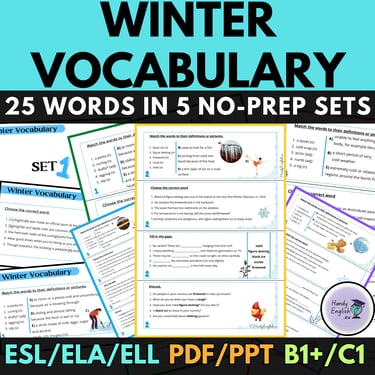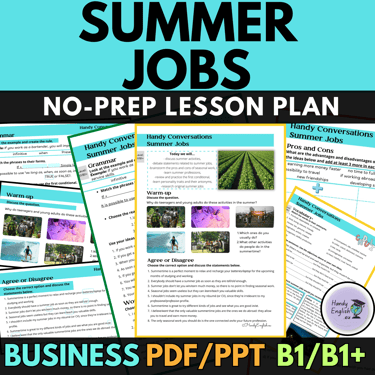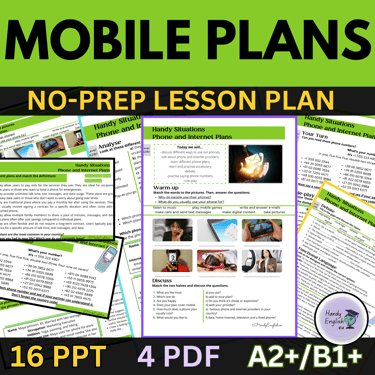[BLOG] Teaching Adults: Strategies and Insights #9 - Designing Lessons for Adult Learners
Discover practical strategies for designing engaging, effective lessons for adult ESL learners. Learn how to tailor content, mix teaching methods, and create lessons that connect to real-world needs.
Kaya
9/26/2025
Please keep in mind that the opinions posted on this blog are my own.
Everybody might have a different experience and opinions, and that's OK.
Designing lessons for adult learners is a bit like cooking for foodies - you can’t just throw ingredients together and hope for the best. Adults notice quality. They know when something feels generic, and they appreciate when lessons are crafted with intention. Over the years, I’ve learned that creating great lessons for adults means balancing structure with flexibility, theory with practicality, and always keeping their real-world needs front and center.
Know Your Audience - Really Know Them
When I say “know your students,” I mean more than just learning their names and hobbies. You need to understand what makes them tick, what challenges they face with English, and how they hope to use the language outside the classroom. I’ve had students ranging from physical therapists and dentists to CEOs, real estate agents, stay-at-home parents, and theatre technicians. Each of them needed English for completely different situations, and the lessons only worked when I took those specifics into account.
Practicality Over Perfection
Adults don’t usually care about passing grammar tests - they care about whether they can handle a business call with a client in Canada, order dinner in Rome, or understand their child’s international school teacher. This means lessons need to be grounded in reality. I might take a complex grammar point and turn it into a role-play for ordering coffee or negotiating a contract. When they see the direct application, they’re far more likely to engage and remember the material.
Build on What They Already Know
One advantage of teaching adults is that they already bring knowledge and life skills into the classroom. They may not know the English word for “spreadsheet” or “chiropractor,” but they know exactly what those things are. I tap into that by linking new vocabulary to concepts they already understand. This makes lessons feel faster, smoother, and more relevant. Plus, they often end up teaching me a thing or two about their own industries along the way.
Mix Methods Like a Pro
I’ve learned to blend methods depending on the lesson’s goal. Sometimes we work with structured exercises, other times it’s case studies, role plays, or discussion-based learning. I keep a library of adaptable activities so I can pivot on the spot if something isn’t landing. The magic is in the mix - a well-timed game, a serious debate, a quick grammar drill, and suddenly you’ve got a group that’s alert, engaged, and maybe even laughing in the middle of a tense topic.
Leave Room for the Unexpected
One of the most beautiful things about adult learners is their unpredictability. A discussion about workplace communication can suddenly veer into cultural norms, personal stories, or even a heated debate about whether pineapple belongs on pizza. I design my lessons with enough breathing space to follow these threads when they’re valuable. It’s in those unscripted moments that language really comes alive, and the class feels less like “school” and more like real conversation.
The Payoff You Can See
With adults, progress is often visible faster than with younger learners because they use English actively outside class. I can’t tell you how many times a student has come back beaming because they successfully gave a presentation in English, handled a tricky client meeting, or even chatted comfortably with a foreign in-law. These real-life wins are the ultimate proof that thoughtful lesson design works.
Designing lessons for adult learners is an art and a science. It’s about tailoring content to their needs, building on their strengths, and giving them tools they can use immediately. When you get it right, you don’t just teach English - you give them confidence, opportunities, and a little more voice in the world.






Get in touch!
Copyright Handy English 2021
”I used this with an adult ELL tutee of mine. I appreciate that the language was accessible for multiple proficiency levels, but the content wasn't obviously geared for children and still useful for older learners.”
August 7, 2023
”Another great resource from Handy English! I used it to give my students more in-depth practise into quantifiers and restaurant language. It's great resource and can be used after the students learn the basics of language for the restaurants and quantifiers. Definitely helped solidify what they learnt.”
February 5, 2023
”Love this resource. Great for fast finishers and also those in small ESL groups. Great for all macro skills as discussion and brainstorming is a great precursor for writing submissions.”
- Gail M.
June 25, 2023
Here's what other ESL Teachers say
Handy English: 4.8/5
”This was a wonderful resource for my students. It helped me introduce them easily to new concepts and it was quite engaging. Thanks!”
- Kiara B.
October 10, 2023
”Great resource for learning vocabulary, which supports comprehension and speaking skills.”
- Lori-Ann W.
September 29, 2023
”What a great way to get a healthy debate going. My students struggle with impulse control and they all have kept it kind and appropriate.”
- Alicia H.
September 17, 2023






